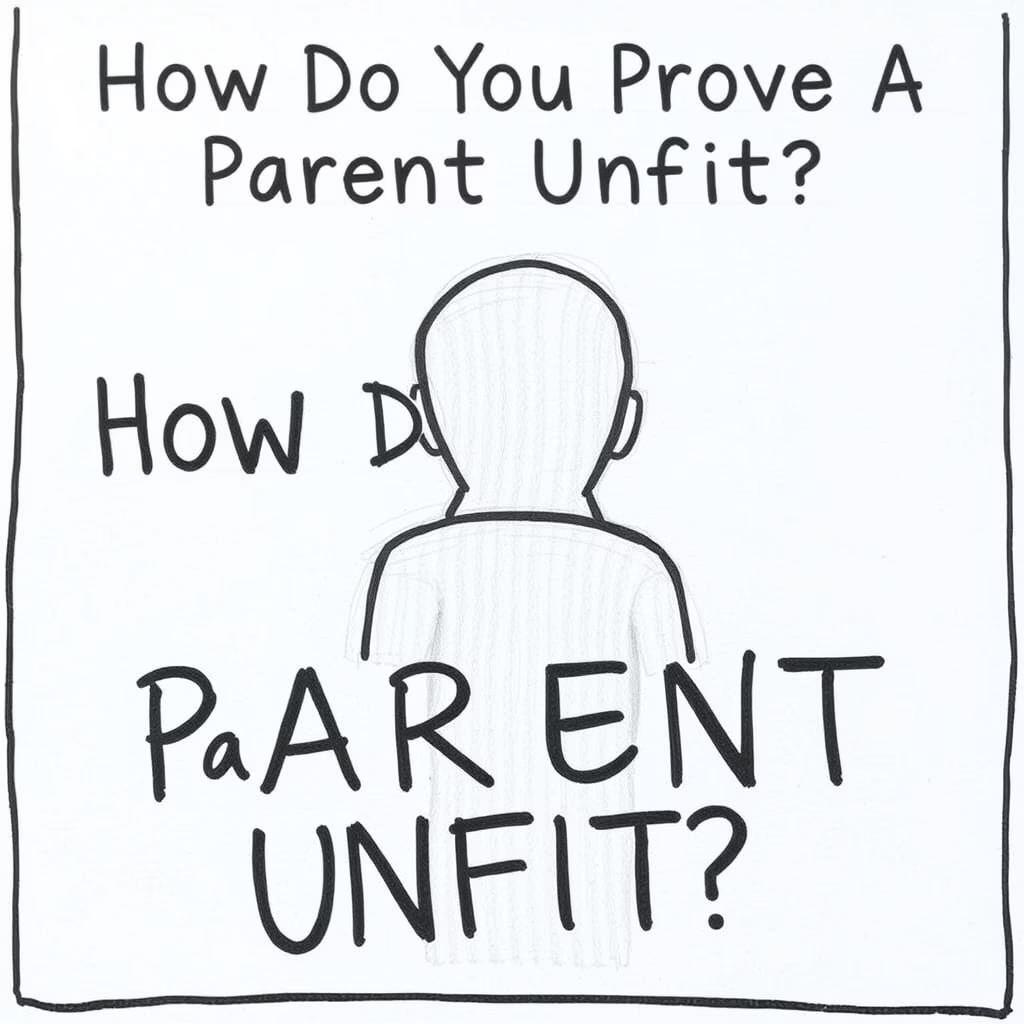How Do You Prove A Parent Unfit?

How Do You Prove a Parent Unfit?
Determining whether a parent is unfit can be a complicated and emotional process. Whether you are involved in a custody battle or seeking to protect a child, it is crucial to understand the criteria that courts use to identify unfit parenting. In this article, we will explore the steps you can take to prove a parent unfit, highlighting key factors that are considered in these cases.
Understanding Unfit Parenting
Before diving into the methods of proof, it’s essential to understand what being an unfit parent means. Generally, an unfit parent is someone whose behavior, lifestyle, or choices might endanger a child’s well-being. Courts usually assess the following:
- Neglect: Failing to provide for the child’s physical or emotional needs.
- Abuse: Physical, emotional, or sexual abuse towards the child.
- Substance Abuse: Using drugs or alcohol in a way that affects parenting ability.
- Domestic Violence: Engaging in violent behavior that could harm the child.
- Inconsistent Parenting: Constantly changing living situations or caregivers that create instability.
Steps to Prove a Parent Unfit
To substantiate claims of unfit parenting, consider the following steps:
1. Gather Evidence
The first step is to collect evidence that supports your claims. Evidence can include:
- Photographs or video recordings that show neglect or abuse.
- Medical records documenting injuries or psychological evaluations.
- Witness statements from family members, teachers, or medical professionals.
- Copies of police reports for incidents involving domestic violence or substance abuse.
2. Document Incidents
Keep a detailed log of incidents involving the parent. Document dates, times, and descriptions of what occurred, as well as any potential witnesses. This documentation can be critical in court.
3. Seek Professional Assessment
Engaging a child psychologist or a family therapist can provide an expert opinion on the parenting situation. Their evaluations can add significant weight to your case.
4. Maintain a Stable Environment
Creating a safe and nurturing environment for the child is crucial. Courts often consider the child’s current living situation when determining custody. Show that you can provide a stable home.
5. Leverage Legal Assistance
Consulting a family law attorney can provide you with the legal expertise necessary to navigate the complexities of proving a parent unfit. They can guide you through gathering evidence and preparing your case for court.
Possible Outcomes
The outcome of proving a parent unfit can significantly impact custody arrangements. Potential outcomes include:
- Modification of custody arrangements, allowing for supervised visitation.
- Granting sole custody to the fit parent.
- Requiring the unfit parent to undergo rehabilitation or counseling.
Conclusion
Proving a parent unfit is not a decision to be taken lightly. It requires careful consideration and thorough documentation of facts. By understanding the process and gathering the necessary evidence, you can take the appropriate steps to ensure the safety and well-being of the child. Always remember that the court’s primary concern is the best interest of the child, so focus your efforts on demonstrating how your claims affect their welfare.






